About us

Tenants are at the centre of all we do
We’re a registered community housing provider and charitable trust offering affordable homes and building sustainable communities across greater Ōtautahi.

Who we are
ŌCHT has been leasing the Christchurch City Council’s social housing portfolio since 2016.
With the homes we own and lease, we provide housing to more than 2700 people in our 2,500 homes situated in more than 110 communities in Christchurch, Lyttelton and Akaroa.
From inception, we’ve grown from a tenancy management service to manage maintenance, projects and the construction of new community homes.
We’re improving the homes we own and lease, and we are building new homes to raise the standard for community housing in our city and nationally.

What we do
We’re a landlord with a difference. We’re a tenant-centric registered community housing provider and we actively work with tenants and social services to foster sustainable tenancies. We do what we can as a landlord to support and empower tenants to enhance individual and community wellbeing.
We’re also a property manager and developer that’s committed to improving and growing affordable housing options in Christchurch, with active maintenance and building programmes that are delivering award-winning, innovative new homes.
We’re in it for the long haul; we operate in a financially sustainable way to provide and grow community housing now and into the future.
Ngā wāriutanga / Our values
We offer proactive tenant support; we build, we renovate and we strive for financial and social sustainability, to provide housing opportunities for people in need now and the future. Ngā wāriutanga - our values - guide our work.
Manaakitanga - Duty of Care
Honesty, integrity empathy and respect; we act with sincerity and empathy – we do what is right, not what is easy. By what we say and do, we show people that they and their wellbeing are important to us.
Ngā whakanui - Celebration
We recognise and celebrate the efforts and achievements of the people we help, and those of volunteers, supporters and employees.
It is what we do and not do, for which we are at all times prudent and accountable in our actions and in our fiscal management.
Toitū te whenua - Enviromental sustainability
Pūataata - Transparency
We operate in a way that meets our present needs without compromising the ability of future generations to meet their own needs.

ŌCHT is a community housing provider
Let’s unpack what that means
-
Community housing is at the opposite end of the housing continuum to home ownership.
Community housing is housing specifically provided to ensure very low income and disadvantaged people have access to an appropriate, secure and affordable rental home. The people who live there don’t pay market rent so living there should be more affordable than in the open rental market.
Community housing rents are often subsidised. In some cases, the community housing provider itself subsidises the rent. In other cases, the government tops-up the rent paid by the tenant to bring what’s paid to the community housing provider up to the level of market rent. The government’s Income Related Rent Subsidy and the Accommodation Supplement are examples of this.
-
A Community Housing Provider provides community housing to those most in need – but there’s more to it than that.
Community housing providers are typically not-for-profit groups that focus on a particular region and that reinvest their surpluses in more community housing. Many are formally registered Community Housing Providers (CHP). They are registered with the Community Housing Regulatory Authority, which is part of the Ministry for Housing and Urban Development.
CHPs must meet performance standards and guidelines to stay registered. You can read more about the eligibility criteria here. You can read more about the standards here.
-
Community housing providers and private landlords are covered by many of the same laws and regulations, but they operate in different ways.
A private landlord chooses tenants based on their own preference; enters into a Tenancy Agreement with their tenants; lodges the bond with Tenancy Services; collects the rent; maintains the property, and applies to the Tenancy Tribunal as necessary to settle disputes. This relationship is one based on the exchange of the use of a house for the payment of rent.
A community landlord does all this but with more focus on helping their tenant get better outcomes. Community landlords help tenants feel settled in their home and more connected with their community, providing stable housing for as long as the need is there.
-
These are among the key characteristics of a good social landlord:
they provide a warm, safe and dry home. ŌCHT owned and managed properties met or exceeded standards before the end of 2021;
they allocate housing based on need, often through the Ministry of Social Development’s Social Housing Register. All new ŌCHT tenants come from the register;
they provide security of tenure or housing for the duration of a tenant’s need. ŌCHT’s specialist teams help tenants maintain sustainable tenancies;
they help tenants find and access social support services. They help tenants engage with the services – but they don’t deliver the services, and they can’t make tenants use them. ŌCHT’s advisors help tenants access support, with consent;
they provide pathways to housing independence where appropriate. ŌCHT’s Wellbeing Advisors, Income Advisor and New Home Advisors help tenants prepare for their move into other accommodation when their needs change;
they provide early intervention around rent arrears or other issues, to enable tenants to successfully manage their tenancy. ŌCHT’S Accounts Advisor provides early help and guidance;
they provide information so tenants know their rights and obligations and are prepared, if and when, they enter the private rental market. ŌCHT’s advisors help tenants prepare for their move when their needs change;
they provide information to tenants about maintaining a healthy home. ŌCHT’s advisors and publications provide focused advice and ŌCHT facilitates access to other social support services;
they regularly inspect properties and, if tenants are not meeting their obligations, give them an explanation of the issue and what they can do to fix it. ŌCHT’s handypeople visit homes at least once a year to ensure the home is warm, dry and secure. Advisors help tenants make their house their home, and have a successful tenancy;
they are receptive to complaints and committed to investigating them, following a well-documented process. ŌCHT publicises and sticks to a complaints process;
they apply to the Tenancy Tribunal only as a last resort to settle disputes;
they provide responsive and adequate property maintenance. ŌCHT has a 24/7 contact service and responds in a timely way to property concerns;
they provide opportunities for tenant involvement. ŌCHT’s Tenant Advisory Group is made up of tenants and meets monthly. The group contributes to ŌCHT projects and planning, and focuses on improving tenant wellbeing and support;
and they provide easy methods of communication with tenants. ŌCHT regularly contacts tenants by letter, email and SMS, and regularly publishes a tenant-focused newsletter. ŌCHT’s website and Facebook page is actively promoted and is home to many resources, including news and updates and ways to contact ŌCHT.
-
CHPs do more than most landlords when they can, but are still bound by many of the same laws and regulations as private landlords. That means they have the same rights and responsibilities as anyone else offering rental housing.
-
The regulations governing ŌCHT don’t allow us to offer social services. We offer community housing.
We can help people find the help or services they might need, but we can’t make people access or use them. We also need their consent to help them get the help they might need. ŌCHT can’t assume responsibility for individual tenants, just like any other landlord.
-
ŌCHT builds new homes and is governed by the same rules and regulations as any other developer. All its developments must, and do, meet the requirements of the Christchurch District Plan.
The council is in charge of how the district plan is developed, interpreted and applied.
Building a legacy in our community
The timeline below gives an overview of how and why ŌCHT was founded, the values we were founded on, key events that shaped us, and other notable events in ŌCHT's past.






